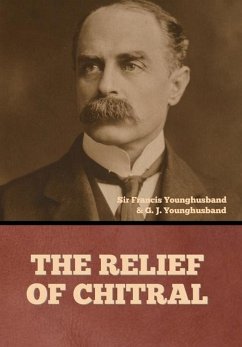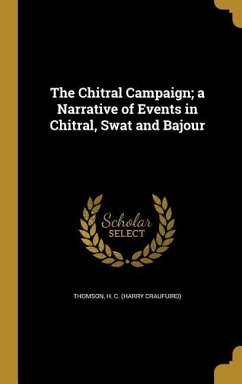"Comprehensively suitable for military historian, academic researcher or simply for general interest. " "An excellent account of a siege on the northwest frontier of the" great game". " "The siege and successful relief of Chitral was a key episode in British Imperial history, coming as it did just a decade after Britain's humiliation in Khartoum, and three years before the their long-delayed response against the Mahdi at Omdurman." About the author: Sir Francis Edward Younghusband, (born May 31, 1863, Murree, India-died July 31, 1942, Lytchett Minster, Dorset, England), British army officer and explorer whose travels, mainly in northern India and Tibet, yielded major contributions to geographical research; he also forced the conclusion of the Anglo-Tibetan Treaty (September 6, 1904) that gained Britain long-sought trade concessions. Younghusband entered the army in 1882 and in 1886-87 crossed Central Asia from Beijing to Yarkand (now in the Uygur Autonomous Region of Xinjiang, China). Continuing on to India by way of the long-unused Mustagh (Muztag) Pass of the Karakoram Range, he proved the range to be the water divide between India and Turkistan. On two later expeditions to Central Asia he explored the Pamirs (mountains). After repeated British attempts to gain trading rights with Tibet, Lord Curzon, viceroy of India, authorized Younghusband to cross the Tibetan border accompanied by a military escort to negotiate trade and frontier issues (July 1903). When efforts to begin negotiations failed, the British under the command of Major General James Macdonald invaded the country and slaughtered some 600 Tibetans at Guru. Younghusband moved on to Jiangzi (Gyantze), where his second attempt to begin trade negotiations also failed. He then marched into Lhasa, the capital, with British troops and forced the conclusion of a trade treaty with the Dalai Lama, Tibet's ruler. This action brought him a knighthood in 1904. (britannica.com)
Hinweis: Dieser Artikel kann nur an eine deutsche Lieferadresse ausgeliefert werden.
Hinweis: Dieser Artikel kann nur an eine deutsche Lieferadresse ausgeliefert werden.








